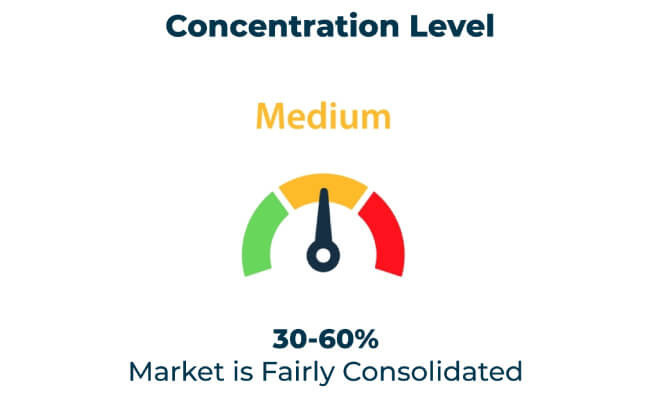The UK respiratory inhaler devices market is expected to grow steadily at a CAGR of 2.1% from 2025 to 2035 and reach USD 913.5 million by 2025.
| Attribute | Details |
|---|---|
| Estimated Industry Size (2025F) | USD 913.5 million |
| Projected Industry Size (2035) | USD 1,117.1 million |
| Value CAGR (2025 to 2035) | 2.1% |
Key drivers are the high prevalence of asthma and chronic obstructive pulmonary disease (COPD), influenced by environmental pollution, smoking, and genetic predisposition. The National Health Service (NHS) plays a pivotal role in providing affordable respiratory care to the population, which sustains consistent demand for inhaler devices.
Technological advances, especially with digitally operated inhalers, are revolutionizing respiratory treatment in the UK Additionally, growing emphasis of manufacturers on introduction of new products to the market anticipate the market growth. Greater awareness of early diagnosis and proactive management of pulmonary conditions further supports market growth. Government initiatives to reduce carbon emissions from metered-dose inhalers also pave the way for eco-friendly innovations.
Explore FMI!
Book a free demo
| Industry | Growth Trends |
|---|---|
| Pharmaceuticals | Collaboration between pharmaceutical companies and digital health firms for smart inhaler solutions. |
| Retail | Surge in e-commerce platforms offering respiratory devices with competitive pricing. |
| Healthcare Providers | The NHS remains a key distribution channel, focusing on cost-effective and sustainable solutions. |
UK respiratory inhaler devices market is moderately consolidated, with a mix of global corporations and domestic players competing.

| Vendor Tier | Tier 1 |
|---|---|
| Key Vendors | GSK, AstraZeneca |
| Market Share (%) | 55% |
| Description | Industry leaders with strong portfolios of inhalation therapies and devices. |
| Vendor Tier | Tier 2 |
|---|---|
| Key Vendors | Philips Healthcare, Boehringer Ingelheim |
| Market Share (%) | 30% |
| Description | Companies offering innovative nebulizers and digital inhaler solutions. |
| Vendor Tier | Tier 3 |
|---|---|
| Key Vendors | Local manufacturers |
| Market Share (%) | 15% |
| Description | Focus on generic products and cost-effective inhaler devices. |
The UK respiratory inhaler devices market will grow steadily over the coming years, fueled by technological advancement and sustainable healthcare initiatives with an increased consciousness of respiratory health. Improved patient compliance and results will be largely achieved through innovation in inhaler design, including AI-enabled smart inhalers.
Environmental regulations will continue to drive the market toward low-carbon inhalers and alternative technologies. The NHS will continue to support and invest in respiratory care, and the market will reflect sustainable growth, balancing affordability with innovation
The UK respiratory inhaler devices market presents a promising prospect, supported by government support, patient awareness, and technological advancement. The industry's adaptability to changing regulatory and consumer landscapes, such as green inhalers and digital solutions, is an excellent indicator of future growth. The companies that give importance to the development of eco-friendly technologies and innovative designs will emerge as winners, securing long-term growth and patient satisfaction.
The market is projected to grow at a CAGR of 2.1% from 2025 to 2035.
The market is expected to reach USD 1,117.1 million.
Combination ICS/LABA Inhaler is projected to grow with a CAGR of 1.7%.
AstraZeneca, Beximco Pharmaceuticals Ltd., and Merck Co., Inc. are few of the prominent players in the market
Generalized Myasthenia Gravis Management Market - Growth & Treatment Advances 2025 to 2035
Hutchinson-Gilford Progeria Syndrome Market Growth – Innovations & Therapies 2025 to 2035
Human Combinatorial Antibody Libraries (HuCAL) Market - Trends & Forecast 2025 to 2035
Dental 3D Printing Material Market Trends, Growth & Forecast by Material, Product, and Region through 2035
Healthcare Digital Experience Platform Market Trends - Growth & Forecast 2025 to 2035
Human Growth Hormone (HGH) Treatment and Drugs Market Trends - Growth & Forecast 2025 to 2035

Thank you!
You will receive an email from our Business Development Manager. Please be sure to check your SPAM/JUNK folder too.